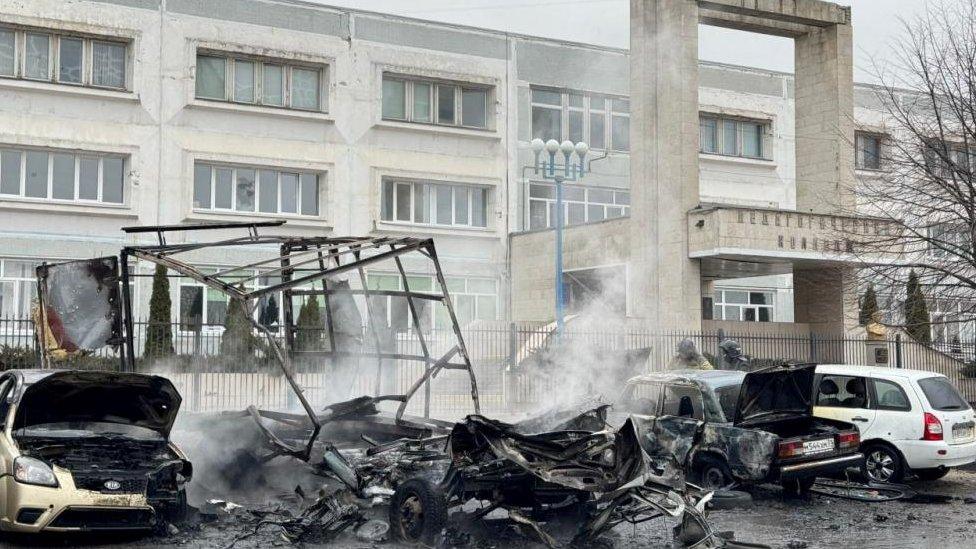Ukraine war: Five dead and a million without power after wave of Russian strikes
- Published
Watch: Moment Ukraine's largest dam hit by missile
A million people are without power across Ukraine after Russian missiles targeted energy infrastructure.
There is no electricity in the second-largest city of Kharkiv, the regional head says, and more than 53,000 households in Odesa are without power.
Ukraine's energy minister, German Galushchenko, accused Russia of trying to provoke "a large-scale failure of the country's energy system".
Russia said it was revenge for recent Ukrainian attacks on Russian territory.
At least five people have been reported killed and 14 wounded.
President Volodymyr Zelensky said the latest wave of attacks showed that Western allies must give more military aid to Ukraine, including additional air defence systems.
"There are no delays in Russian missiles like there are in assistance to our country," he wrote on Telegram.
Some 90 missiles and 60 Shahed drones were launched into Ukraine during the wave of overnight attacks, he said.
Among the targets was Ukraine's largest dam - the DniproHES in Zaporizhzhia, which was hit eight times according to Ukrainian officials. Video footage appeared to show the dam on fire, but authorities say there is no threat of an imminent breach.
Officials also say that a trolleybus which was crossing the dam at the time caught fire after a missile strike, killing the driver.
"At 04:30 all hell broke loose. Terrible fireworks and explosions. At one point, our house tilted," Valentyna, an eyewitness whose house overlooks the dam told the BBC.
The UN's nuclear watchdog, the IAEA, said the Zaporizhzhia nuclear power plant lost connection to the main power line for almost five hours on Friday following the Russian attacks.
This highlighted the "ever-present dangers to nuclear safety and security during the conflict", it said.
The plant, however, continued to receive external electricity for reactor cooling from its only remaining back-up power line.
Regional head Ivan Fedorov said seven buildings in Zaporizhzhia had been destroyed and 35 others damaged.
Strikes were also reported in President Zelensky's hometown of Kryvyi Rih and in Vinnytsia, both in central Ukraine. They damaged a "critical infrastructure object", said Ukrainian officials.
Russia's defence ministry said the assault on Ukraine's power grid was part of a series of revenge attacks against Kyiv for its earlier incursions into Russian territory.
Local officials in the Russian region of Belgorod, near the border with Ukraine, said on Thursday that a woman had been killed and many other people wounded by a Ukrainian strike.
The fresh attacks come a day after Russian forces launched one of their biggest air strikes in weeks on the Ukrainian capital, Kyiv. At least 17 people, including a child, were injured by falling debris.
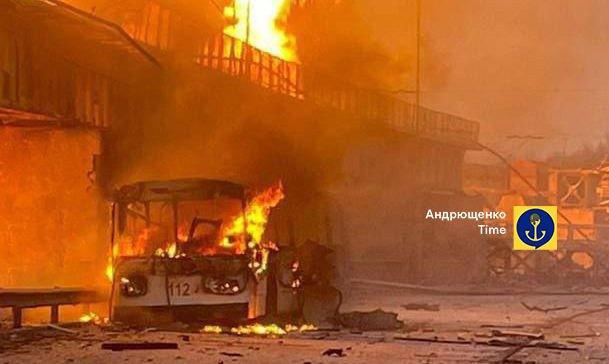
A trolleybus crossing the dam in Zaporizhzhia caught fire
Attacks on the energy grid has been part of Russia's warfare against Ukraine since 2022.
Moscow has previously carried out strikes on Ukrainian power infrastructure plunging millions of people into darkness and depriving them of heat, power and water.
Attacks during the autumn and winter of 2022 left 17 million Ukrainians without a regular supply of electricity for extended periods.
But the head of the Ukrainian grid operator, Volodymyr Kudrytsky, said Thursday night's attacks were worse.
"Even last winter, attacks on our energy system weren't so bad as last night. Dozens of grid facilities have been hit. This is on a global scale."
Mr Kudrytsky added that the worst affected area was Kharkiv, where "Russia literally tried to destroy all the main energy facilities feeding the city".
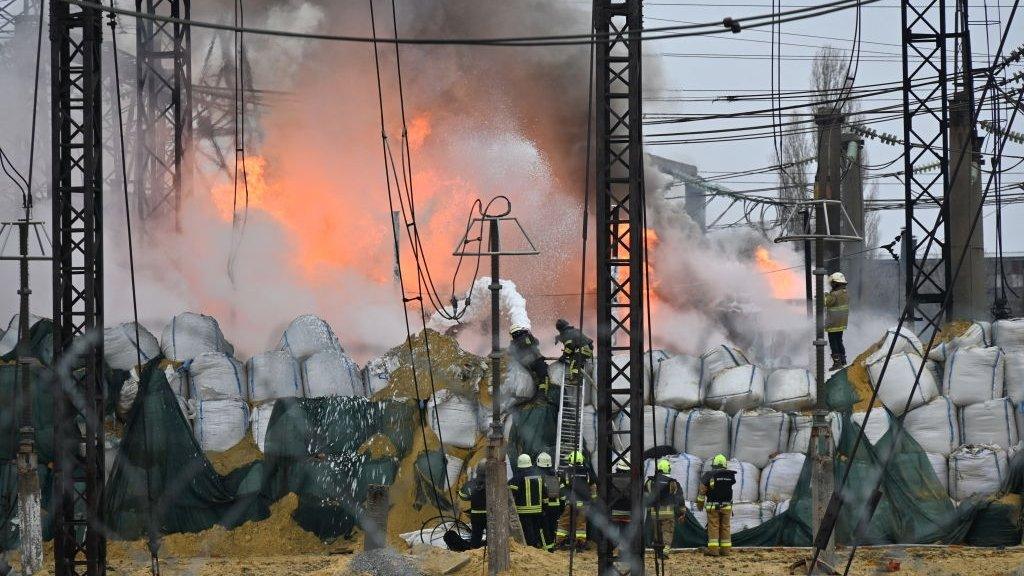
Firefighters at a power station in Kharkiv after Russian missile attack
President Zelensky has often described the Russian attacks on power stations as "energy terrorism".
The White House condemned Thursday's attacks and renewed its call for urgent additional air defences for Ukraine as soon as possible.
Earlier this month, the International Criminal Court issued arrest warrants for two top Russian commanders, accusing them of ordering attacks on Ukrainian energy infrastructure.
Related topics
- Published21 March 2024
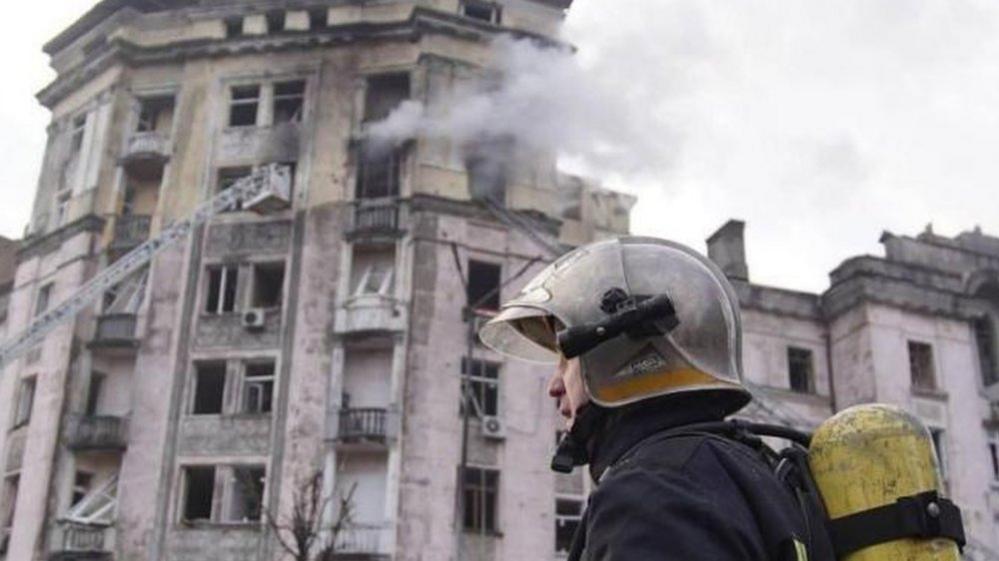
- Published22 March 2024
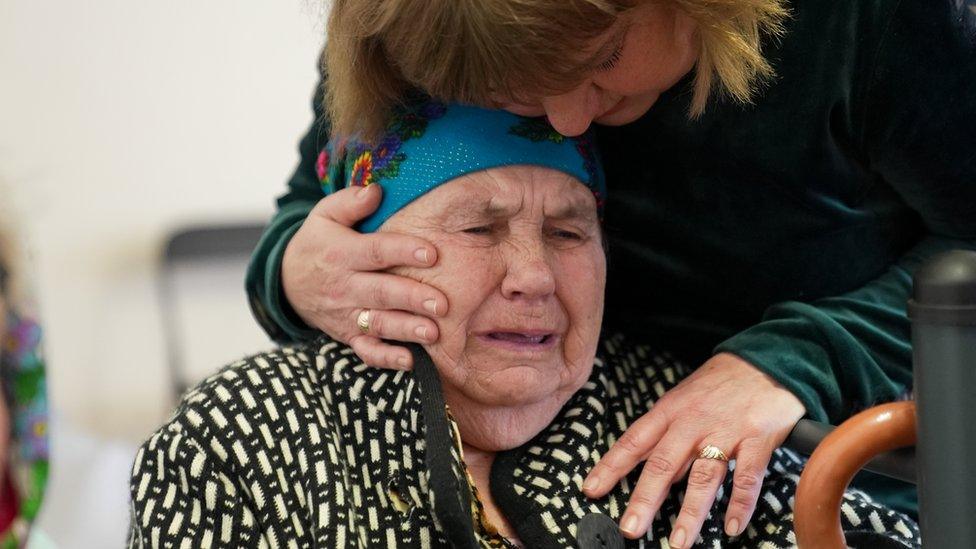
- Published1 December 2022
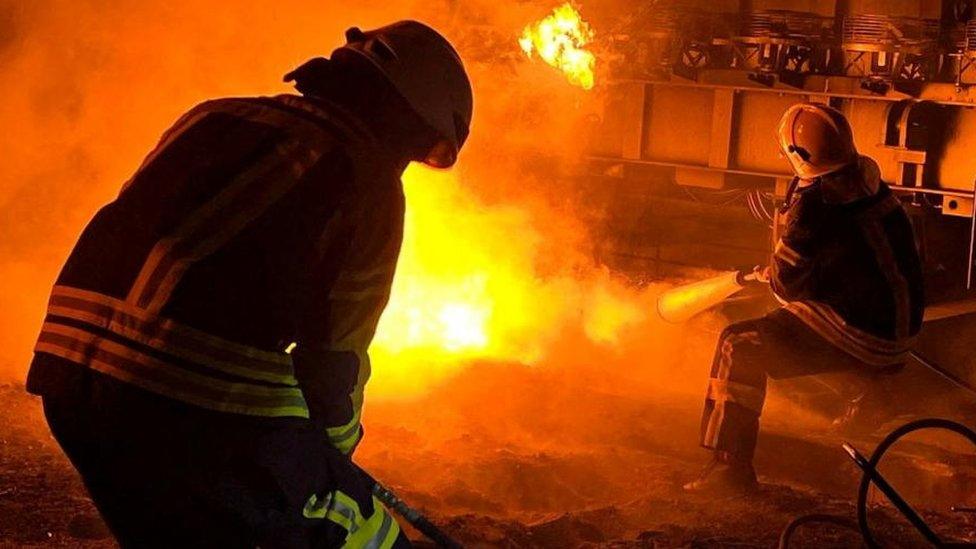
- Published16 March 2024
